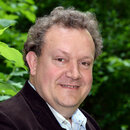Scientific Supervision of the Implementation of the National Action Plan
The starting-point for the National Action Plan (NAP) ‘Towards a Germany Suitable for Children, 2005–10’, which was adopted by the Federal Cabinet in February 2005, was the World Summit for Children held in New York in May 2002. The NAP was enshrined in the Coalition Agreement and anchored in the Federal Ministry for Family Affairs, Senior Citizens, Women and Youth [Bundesministerium für Familie, Senioren, Frauen und Jugend, BMFSFJ] as an important focus of child and youth policy. Important aspects of the framework for the implementation process include:
(1) The diversity of the topics included in the NAP, which is concerned with six different areas of action:
(2) Measures and goals at various levels of specificity: general goals, as formulated in the various chapters of the NAP, each with two central aims that are mentioned in the preamble for each of the areas of action; and in particular the aims of the total of 170 measures that were decided on for the various topic areas.
Initial key features of the process of implementing the NAP include the presentation of an intermediate report and the holding of a national conference in the autumn of 2007. The aim here is to take stock and to update the NAP. In addition, the third State Report on the implementation of the UN Convention on the Rights of the Child, which is due in 2009, is also to include an assessment of the results of the NAP.
The aim of the scientific supervision is to carry out continuous observation and documentation of the process of implementing the plan. The scientific supervision will be conducted by investigating current developments, questionnaires, and analyses and intends identify the factors that either promote or obstruct the process.


